1. How is NDIS reporting managed?

There are a range of reporting requirements for NDIS providers. Creating reports manually is time-consuming and tedious, and can be partially or fully automated by the right NDIS software.
Incident reports, service delivery reports and progress reports are all important reporting requirements under the NDIS. Failure to comply can result in heavy penalties. The NDIS Commission recently issued fines with a total of $778,800 and 40 infringement notices to 12 Specialist Behaviour Support and NDIS providers for compliance issues.
2. How are participant records managed?
Disability support organisations are required to maintain accurate participant records and records of all participant-related activities, which may be needed from time to time for audits. Full and accurate records of supports delivered should include the participants name, reference number, hours and quantity of the support delivered, support type and location of support delivered.
3. How is incident management handled?
Incidents must be reported to the NDIS within a stipulated timeframe, most within 24 hours and use of restrictive practices within 5 business days. Some incidents that must be reported to the NDIS Commission include death or serious injury, abuse or neglect, unlawful sexual or physical contact, sexual misconduct and unauthorised use of restrictive practices.
According to National Disability Services, providers should record different types of incidents, including data breaches and property damage, even if they are not reportable to the NDIS.
4. Is it scalable?
As your organisation expands, you may need to handle a larger volume of clients and their information. This is why it is important to consider whether the software can handle an increase in workload and still maintain efficiency.
For example, does the software have a limit on the number of users it supports? Is the software customised for a certain number of clients? The NDIS recently introduced changes to group-based supports pricing. Is the software able to integrate this change in a timely manner?
Some systems may be more scalable than others, allowing you to add more users or features as need without compromising performance. Scalability ensures that the software remains useful as your needs expand.
5. Is support and training provided?
Reliable customer support and comprehensive training resources can significantly improve the software’s implementation and ongoing use. Check if the provider offers onboarding support, user manuals, and local phone support.
Emailing an overseas team every time you have a software issue can be time-consuming and frustrating. Having local phone support ensures accountability and prompt resolution of queries, providing you with peace of mind and a smoother user experience.
6. What integrations are available?
Integrating your disability support software with other systems, such as accounting, payroll, and communication tools, can improve overall efficiency and reduce the chances of data entry errors. Look for software that offers seamless integration with commonly used systems to further streamline your operations.
This integration reduces manual data entry tasks and enhances overall efficiency. Data security is a key priority, so make sure the software integrates with reputable providers who follow industry-standard security practices for client data protection.
7. Does it have support coordination and plan management capabilities?
Plan managers and support coordinators will want to opt for software that can support the services they provide. Some NDIS software provides this additional flexibility, which can make it easier for support coordinators and plan managers.
The software should be able to manage service agreements, budgets, invoicing, claims processing, and more for different types of NDIS services.
8. How much will it cost?
It’s important to consider the system’s long-term cost-effectiveness. Look for software that offers competitive pricing and flexible options, such as pay-per-client so you only pay for what you use. Additionally, factor in potential savings from increased efficiency and productivity when evaluating the overall cost.
While the software is one cost for the business, it is important to evaluate all the costs involved in becoming an NDIS provider so you get an accurate understanding of what is involved,
9. How secure is it?
Given the sensitive nature of information handled in the disability support industry, security should be a top priority. Make sure the software you choose has proper encryption measures, regular backups, and strict access controls to protect client data. Software should have ISO certifications and robust protocols to prevent unauthorised access to client data.
As an example, CTARS is ISO 27001 certified, ensuring high information security standards. The software also has two-factor authentication to ensure only authorised personnel can access certain levels of data.
Conclusion

Choosing the right disability support software involves careful consideration but with the right solution, providers can focus on more important aspects such as enhancing the quality of care and improving their services for participants.
CTARS is an advanced, highly secure NDIS management software with the capabilities to help NDIS providers meet their obligations and streamline their business processes with industry-leading features and capabilities.
With the ability to scale up with providers as they grow and meet different organisational needs such as reporting, medication management, compliance and more, CTARS is a comprehensive solution for providers to deliver high-quality services efficiently.
Want to learn how CTARS works? Book your CTARS demo today.








